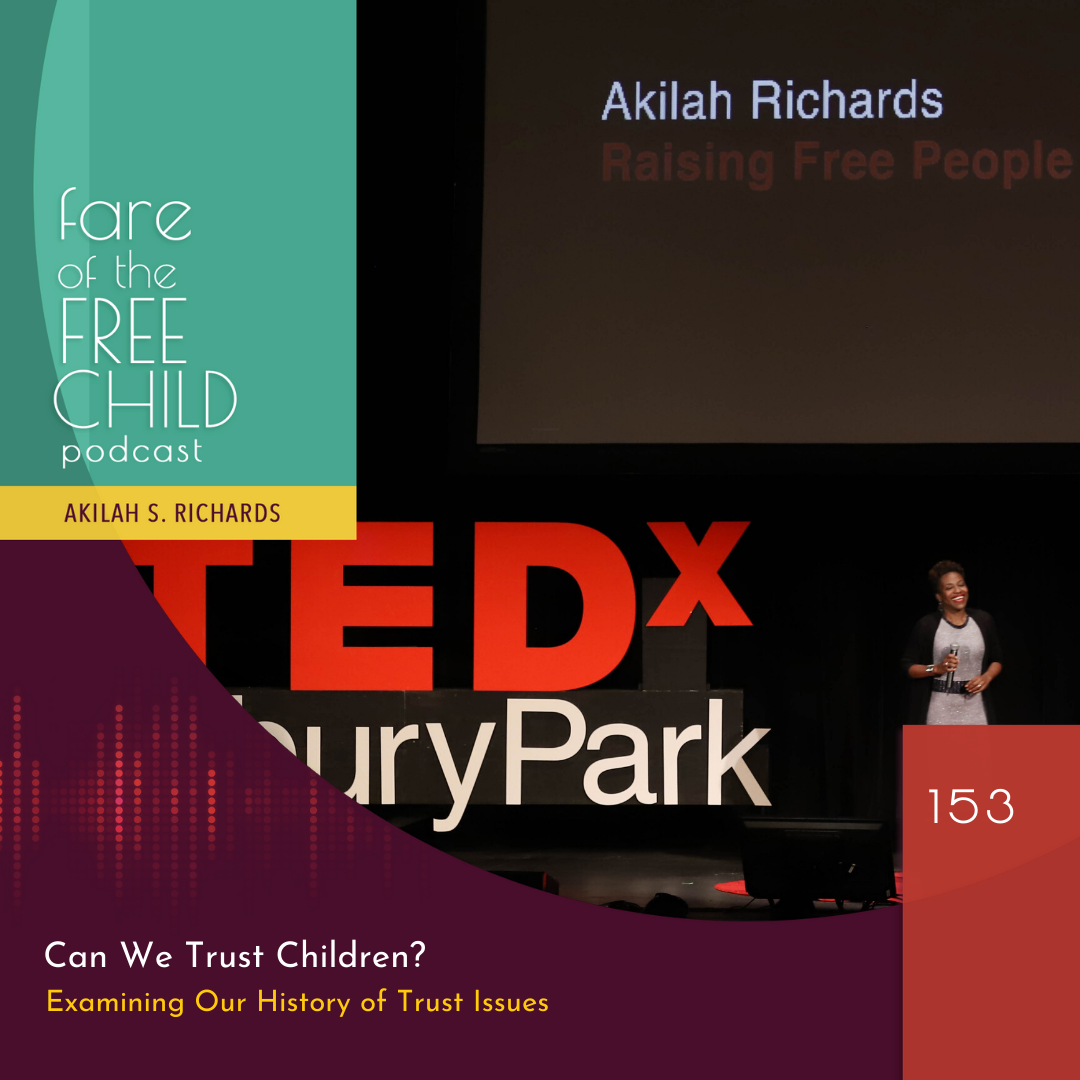Akilah Richards: hosts this widely celebrated podcast, Fare of the Free Child, that features more than 150 episodes on Self-Directed Education among Black, Indigenous, and People of Color (BIPOC) communities. She is the author of the forthcoming book Raising Free People, and she and her partner are raising two self-directed daughters.
Some of the Topics Talked About:
Trusting children. Are children inherently untrustworthy? Where does the evidence point to children being untrustworthy? Do children need time to be taught trustworthiness? Does Freedom and trustworthiness come with being a human being? Are adults afraid of their children growing up untrustworthy ur unsuccessful? What is our approach in raising trustworthy children? How do we trust young people? What is the connection between children learning and trust?
According to the late great lyricist called Christopher “Biggie” Wallace, this is “Mad Question Asking!! Is Question asking important? Yes it is. It’s a life skill that’s important especially when questioning one’s way to connection trust and freedom to childhood.
Liberation Work. What is a type of liberation work? Raising free people is a type of liberation work. Unschooling is liberation work.
Forced schooling. It’s is an oppressive strategy. We do it mostly because it’s what we’ve always seen.
Tools of Oppression. What are tools of oppression in the context of school? Systems rooted in the assumption that children are not to be trusted; force to participate in daily punishment reward-based systems rooted in the notion of knowledge being this “top down” thing… Forcing children to engage in curricular that deliberately omit black indegenous and people of color contributions and knowledge systems from narratives about history and the present. Tools of oppression are far more normalized than trust-based practices.
What is unschooling? A form of self-directed education; phrase by author, educator in the 70s named John Holt. What is the difference between homeschooling and unschooling? Unschooling does not enforce any particular curricular nor does it have pre-determined ideas of what children should learn. Unschooling does not mean unparenting. Often means liberation work. It’s a child-trusting, anti-oppression, love-centered approach to living learning. Rooted in consent, respect and confident autonomy, Helping children to build self-confidence.
Digital Nomads. People who redesigned the entire structure of their lives to focus more on shared housing, public transportation, ways to generate income that’s not based on a particular place. A shift made to accommodate unschooling.
Mad Question asking practice. Mindful questions and trustful practices is helping us to recognize and disrupt other forms of oppression.
SOME KEYS TO TRUSTING CHILDREN:
*Develop your own mad question asking practice.
*Know that mindful questions and trustful practices are helpful to recognize and disrupt other forms of oppression.
*We cannot keep using tools of oppression and expect to raise free people.
*We must examine privilege and power, particularly in our relationships with children.
—
“We must examine privilege and power in our relationships with our children, the world’s most vulnerable citizens, and embrace chaos in efforts to allow trust-based practices to emerge. We can do this through liberation work that centers a decolonization of childhood, allowing trust-based practices and language to emerge. The practice brings forth a necessary chaos, a shedding of the power-over dynamic from adults toward children.” – Akilah S. Richards
This week, as part of a series on parent founders of Self-Directed Education spaces, you’ll share in one woman’s journey. Sonia Fernandez Leblanc, a White woman who was born and raised in Dominican Republic, and her husband—a Black man from Puerto Rico (who was raised in St. Croix and in Dominica where his family is from)—are raising two brown girls in the American South, and wants to be part of the change in relationships among people in the world by raising more self-aware, socially just, liberation-minded children. Sonia will tell you how she ended up creating community, joining efforts with her community, and finding, then founding, the Sudbury approach that met her community’s needs. Her Baltimore beginnings, her dismay around education, moments of jealousy and plenty of joy, all of it, straight from Sonia, founder of Nashville Sudbury School in Tennessee, US. #BIPOCinSDE







